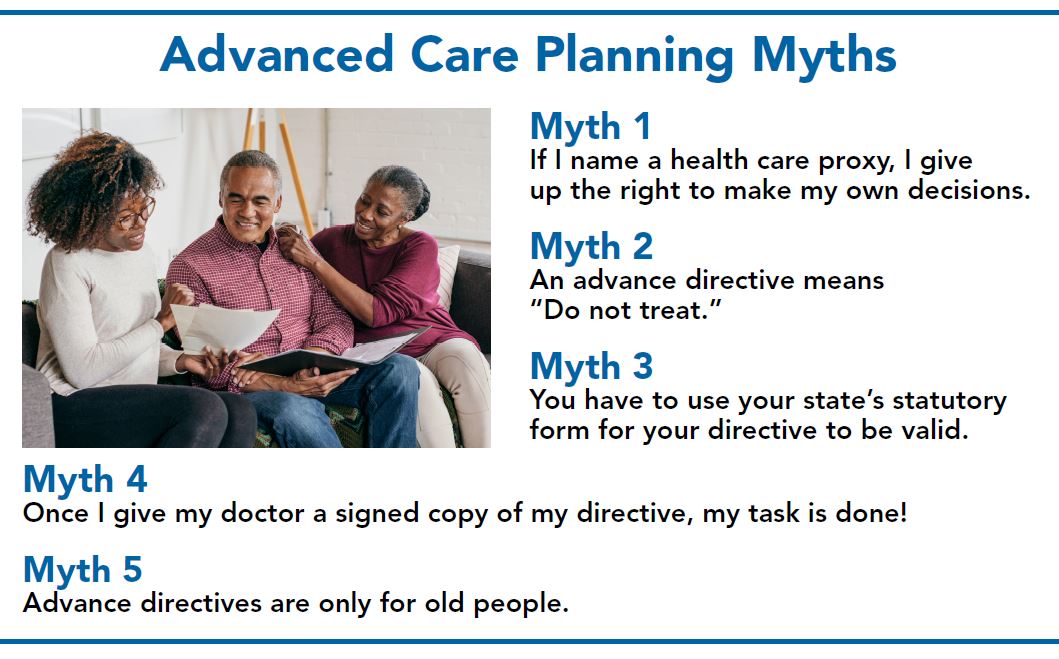
The world is living through a global pandemic that brings to surface the fragility of life. In the United States of America, New Jersey is considered to be one of the top ten states affected by the COVID-19 virus, commonly referred to as the Coronavirus. Our community in Southern New Jersey is strong and is rising up to the challenge of social distancing, but it is not easy. Social distancing is difficult, with families spread apart missing one another, and significant life milestones. It can be made more difficult by the passing of loved ones.
Request your free copy of Five Wishes >>
The pandemic is not the reason you need to make your end of life care wishes clear, but it serves as a clear reminder why it is so important. The reason to plan ahead is because life comes unexpectedly. Planning ahead enables you to understand all your options when you are feeling rational and not inundated by the emotions of the moment. By creating an advanced care plan you make your voice heard in the decisions made about your health, when you may not be able to communicate them yourself.
 First thing to know is that advanced care planning is for everyone, age and good health should not deter you from putting together an advanced care plan. The second thing to know is that there are different types of advanced care planning. Three common types are:
First thing to know is that advanced care planning is for everyone, age and good health should not deter you from putting together an advanced care plan. The second thing to know is that there are different types of advanced care planning. Three common types are:
 A living will is an advanced care plan that provides direction on the kind of care you wish to receive during an end of life medical situation. Samaritan recommends the Five Wishes living will document. The document is recognized and meets legal requirements in 42 states, including New Jersey, Delaware, and Pennsylvania (Source: Aging with Dignity).
A living will is an advanced care plan that provides direction on the kind of care you wish to receive during an end of life medical situation. Samaritan recommends the Five Wishes living will document. The document is recognized and meets legal requirements in 42 states, including New Jersey, Delaware, and Pennsylvania (Source: Aging with Dignity).
Five Wishes makes it easy to start the conversation and walks you and your family through the personal, spiritual, medical, and legal wishes you have for end of life care. This living will makes it easy for you to lay out your wishes, but still provides clear direction for medical personnel. It informs medical personnel:
The first step in advanced care planning is to fill out your living will document and share your decisions with your trusted friends, family members, and doctors. Make it clear to them where the document is stored. Do not keep it hidden where it cannot be easily accessed. The document is recognized as a legal document and does not need any notarization nor does it need to be reviewed by a lawyer. Remember to keep your living will up to date with every major family change, death, or healthcare changes. If none apply be sure to review every 10 years.

 A Physician Orders for Life-Sustaining Treatment (POLST) is a type of advanced care plan for individuals with advanced illness or frailty. It is not a living will but can act as a complement to a living will. This medical order can travel with you across medical providers and across states. The key factor with a POLST form is that it needs to be signed off by your doctor to be considered as valid.
A Physician Orders for Life-Sustaining Treatment (POLST) is a type of advanced care plan for individuals with advanced illness or frailty. It is not a living will but can act as a complement to a living will. This medical order can travel with you across medical providers and across states. The key factor with a POLST form is that it needs to be signed off by your doctor to be considered as valid.
POLST forms need to be filled out with a medical professional and outline a patient’s wishes for medical treatment in line with their beliefs and values. The POLST differs from the living will in several ways, one being that it discusses specific medical illnesses, the diagnosis, prognosis, and treatment options that a patient would like to pursue.
POLST forms can differ from state to state, but the quality of care is regulated by the National POLST organization. The organization also helps patients make sure their POLST form is honored. They provide resources to learn about your states POLST information here: POLST MAP
A Medical Power of Attorney proxy (or a durable power of attorney for healthcare) is an advanced care plan that allows you to name a proxy (agent) to make all your health care decisions in the case that you are unable to do so. It is important to let your agent know that you have assigned them to this role, as well as having the conversations with them on what your approach to medical treatment would be. While applicable at the end of life, it can also go into effect in other medical situations where you are not able to advocate for yourself. In order for your agent to make decisions for you, your physician must first declare you unable to make your own medical decisions.
 One other thing to consider along with medical end of life care preparations is planning for who gets what when you are no longer around. Fighting over assets and valuables left behind by loved ones can create unnecessary tension in families. Setting up a clear plan on how you want everything to be distributed is valuable for you and those who might be left behind. Your estate may be one of you most valuable assets, setting up a plan with your attorney will help you legally ensure that your wishes are carried out.
One other thing to consider along with medical end of life care preparations is planning for who gets what when you are no longer around. Fighting over assets and valuables left behind by loved ones can create unnecessary tension in families. Setting up a clear plan on how you want everything to be distributed is valuable for you and those who might be left behind. Your estate may be one of you most valuable assets, setting up a plan with your attorney will help you legally ensure that your wishes are carried out.
All adults over the age of 18 are considered competent enough to make their own healthcare decisions. Any plan you make will only be in effect should you be unable to do so yourself. Not having a plan means you are allowing someone else to make the decisions for you, without your input as a factor. When it comes to your healthcare decisions, you should have the final say in who speaks for you and what kind of care you receive. The COVID-19 outbreak has served as a reminder of the fragility of life and a wake up call that we need to plan for unexpected curves in life before we reach them.
◊ Filled out your Five Wishes? Read more here . . .
◊ Filled out your POLST form (if applicable)? Read more here . . .
◊ Filled out a NJ Healthcare Proxy Directive? Read more here …
◊ Filled out your estate planning documents? Read more here . . .
◊ Talked to your loved ones about your end of life requests? Start the conversation with these resources . . .
Sources: